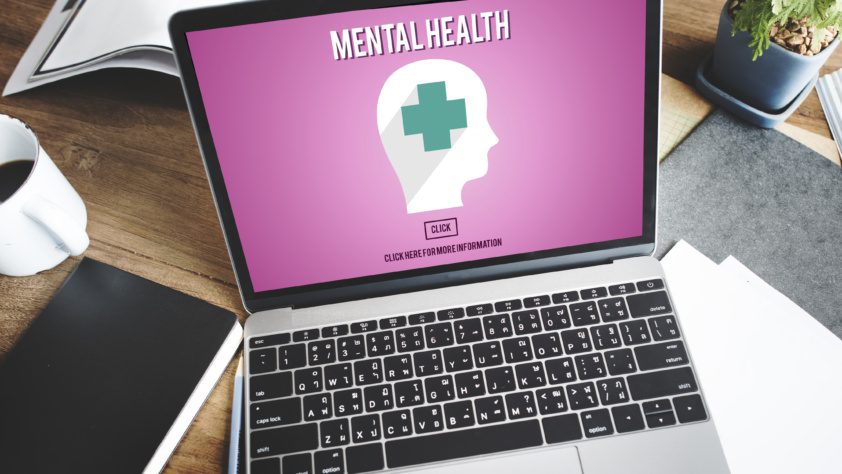In recent years, we’ve seen a noticeable increase in the use of various web solutions in health care. Creating and improving web applications to provide more efficient and accessible medical care is one of the reasons for the growing popularity of web development in the field of health care.
This blog post will review the various aspects of healthcare web development and reveal the most current and promising trends in the field.
Exploring the Role of Telehealth
Telehealth is a set of technologies and functions that are intended for remote consultation and diagnosis of a patient by a doctor. In particular, telehealth includes remote patient monitoring, remote medical education, interactive patient care, as well as asynchronous transfer of patient data to the doctor.
The Future of Healthcare through Remote Patient Monitoring
- Prepared technical documentation
- Successfully created and implemented the custom design for the entire project
- Planned and created project and database architecture
- Deploy project infrastructure
- Completed the entire task pool according to client requirements and within the established budget
- Complete coverage of the project with Unit and QA tests
Interactive Patient Experiences: Web Development Transforming Healthcare
If the previous type of telehealth refers to remote care, then Interactive Patient Care refers more to patients who are already in an inpatient form of treatment. Interactive patient care involves software and gadgets that provide the most comfortable service to the patient lying in the ward. This includes quick access and interaction with supervisors and doctors, providing educational and entertainment content, and more. This area of telehealth is delivered through interactive HD monitors, peripherals such as controllers and transmitters, and other multimedia devices at the patient’s bedside.
Exploring Store and Forward Solutions in Healthcare
Asynchronous patient data transfer (Store And Forward) is a branch of telemedicine that uses software to collect and store data about the patient and their physical condition. These data include medical history, X-rays, MRI scans, test results, etc. The main difference between unsynchronized patient data transfer is that the client does not have direct online meetings with the doctor.
Web Development Influence and Wearable Health Technology
Continuing the previous topic, gadgets worn on the human body also help patients’ health. Smart watches that measure heart rate, blood pressure, stress, sleep, blood oxygen level, etc. are a clear example of such a solution.
In addition to smart watches, in the field of health care, wearable gadgets also include devices that remotely monitor the health of a patient under supervision, devices that monitor the heart condition, etc. Such gadgets allow doctors to quickly and efficiently determine the patient’s condition, and on the basis of the received data on heartbeat and blood pressure, they can better think through the treatment of the patient and quickly solve the problem that has arisen in their body.
How AI is Reshaping Healthcare Web Development
- Virtual assistants reinforced by AI. Chatbots with artificial intelligence facilitate patient treatment due to the fact that the chatbot can quickly and answer the patient’s questions about their health at any time, without distracting the doctor from their main duties. It is also able to organize a meeting with a specialist with the help of well-thought-out patterns.
- Reducing the probability of by the human factor. First of all, artificial intelligence eliminates the probability of human error. AI is able not only to analyze a huge amount of patient-related data, but also to detect certain features of the disease, which sometimes a professional doctor is unable to notice.
- Prevention of fake information. Artificial intelligence implementation in healthcare allows to recording suspicious patterns and fake information regarding patient data.
Blockchain's Contribution to Medical Website Security
Blockchain technology is very popular due to the fact that this system allows you to securely store data and protect it from unwanted interventions. Blockchain is built in such a way that it is impossible to overwrite the data of one element without altering the rest of the data in the chain.
The blockchain system is especially relevant for the field of medicine, where the privacy of patient data is paramount. Thanks to the blockchain, medical institutions can share information with the patient without violating his privacy.
Enhancing Patient Engagement Through Apps
One of the examples of IT technologies in the field of healthcare is involvement of patients in their own treatment through applications. The primary purposes of self-care apps are informing patients about their current physical condition, engaging patients in self-care and learning self-care skills outside of the hospital, and simplifying the development of treatments that meet the patient’s individual needs.
An example of such an application is the AC Health platform, which is designed to provide patients with personalized care instructions. Using these instructions, doctors are able to provide patients with more convenient, sophisticated plans for wound healing, drug treatment for colds or certain organs diseases, etc.
Navigating Healthcare Chatbots in Development
- Personalized experience. Chatbots give advice to patients based on the database obtained from it. So, the program learns about the medical history, recent symptoms, and based on the database, it can form its own assumptions about the diagnosis and provide useful advice;
- Availability. Unlike professional doctors, chatbots are available 24/7 from any device;
- Increasing the efficiency of treatment. The efficiency of medical institutions increases due to the fact that chatbots perform the functions of virtual assistants of the patient and are able to solve less serious diseases (a cold or relief of symptoms of a more serious disease, for example). Meanwhile, how professional specialists are able to focus on more serious problems of patients.


